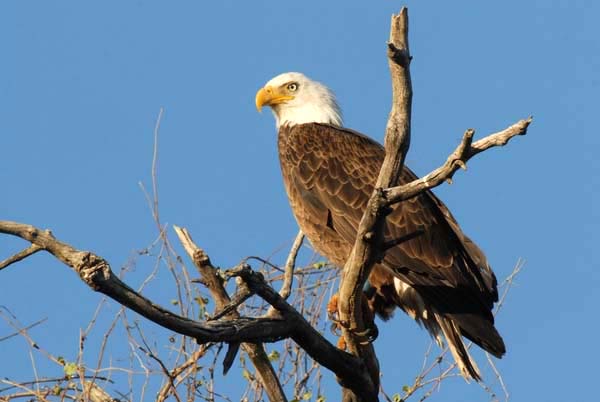Outdoor recreationists, pilots and drone operators asked to avoid bald eagle nest areas
PHOENIX — Arizona’s bald eagles are back and they will soon be working on the next generation of eagles at breeding sites statewide.
To assist with the state’s continued bald eagle population growth, the Arizona Game and Fish Department encourages outdoor recreationists, aircraft pilots, drone operators and motorized paragliders to do their part by not disturbing the state’s 89 eagle breeding areas. As such, some portions of public land and water areas will be temporarily closed to help protect these majestic animals to ensure even more young eagles take to the skies this spring.
“Arizona’s bald eagles are busy preparing their nest for what’s hoped to be a productive breeding season,” said Kenneth “Tuk” Jacobson, AZGFD bald eagle management coordinator. “The birds nest, forage and roost at rivers and lakes that are also popular recreation spots. That’s why we must be vigilant to help protect the birds to ensure their populations statewide continue to flourish. That success wouldn’t be possible without the cooperation of outdoor recreationists who respect the closures during the breeding season.”
During the 2019 breeding season, 71 young hatched and 63 reached the important milestone of their first flight, known as fledging.
To further protect the eagles, various land and wildlife management agencies will also close areas around breeding locations, including near popular recreation sites.
Pilots are reminded to maintain the FAA-recommended 2,000-foot above ground level advisory when flying over bald eagle habitat, while drones and paragliders are asked to avoid the areas completely. Bald eagles are sensitive to even short durations of low-flying aircraft activity near their nests and just a few minutes of disturbance can lead to a nesting failure.
AZGFD’s bald eagle management efforts are supported by the Heritage Fund, an initiative passed more than 20 years ago to provide for wildlife education and conservation through Arizona lottery ticket sales.





